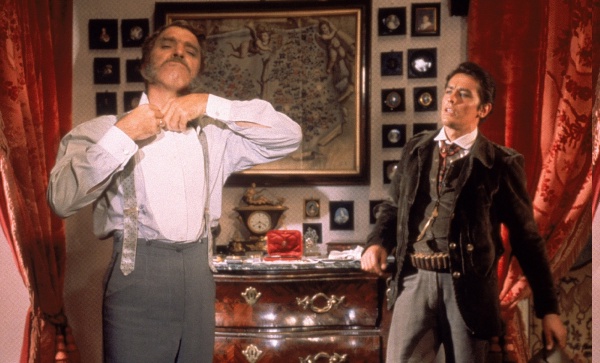Why "data ownership" may not really matter
Just ask the Leopard.

Back in 1958, Giuseppe Tomasi di Lampedusa published his masterpiece “Il Gattopardo” (The Leopard), a wonderful novel (then movie) that Britannica describes](https://www.britannica.com/topic/The-Leopard) as “a psychological study of Don Fabrizio, prince of Salina (called the Leopard, after his family crest), who witnesses with detachment the transfer of power in Sicily from the old Bourbon aristocracy to the new Kingdom of Italy and the grasping, unscrupulous liberal bourgeoisie during the 1860s".
Last year, J. Muldoon published an article about how to make the digital economy (more) democratic, that starts by defining a couple of terms:
A data-owning democracy (DOD) is a political-economic regime characterized by the widespread distribution of data as capital among citizens.
Digital socialism (DS) entails the social ownership of productive assets in the digital economy and popular control over digital services.
The bulk of the article highlights three ways in which digital socialists would consider DOD to fall short of achieving a more just digital economy:
- a lack of workplace democracy
- limitations in terms of scope, and
- lack of democratic control over long-term investment decisions in new technology
One of the greatest (tragic) moments of The Leopard is when his nephew Tancredi explains to Don Fabrizio why, in 1860, he is going to join the new regime (and Don Fabrizio approves):

“Unless we ourselves take a hand now, they’ll foist a republic on us. If we want things to stay as they are, things will have to change” (source)
One hundred and sixty-two years later, the common element of the three criticism that Muldoon points out in his article is the fact that…
“DOD remains too closely wedded to existing conditions and does not make a strong enough intervention to alter the relations of power between citizens and corporations."
As Mark Twain probably did NOT say, “History doesn’t repeat itself but it often rhymes”. The Leopard and his nephew would have loved this DOD.
By the way, the same problem also plagues every proposal to treat “data as money”: in and by themselves, neither “data unions” nor “data cooperatives would yeld more democracy.
Who writes this, why, and how to help
I am Marco Fioretti, tech writer and aspiring polymath doing human-digital research and popularization.
I do it because YOUR civil rights and the quality of YOUR life depend every year more on how software is used AROUND you.
To this end, I have already shared more than a million words on this blog, without any paywall or user tracking, and am sharing the next million through a newsletter, also without any paywall.
The more direct support I get, the more I can continue to inform for free parents, teachers, decision makers, and everybody else who should know more stuff like this. You can support me with paid subscriptions to my newsletter, donations via PayPal (mfioretti@nexaima.net) or LiberaPay, or in any of the other ways listed here.THANKS for your support!